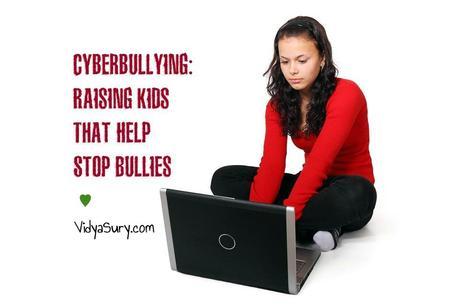
October is National Bullying Prevention Month, which means that many parents and children will be discussing that form of bullying unique to the digital age: cyberbullying. Not that cyberbullying is restricted to a particular month, but it is good to focus on becoming aware of this particular monster that can wreak havoc in the lives of children and parents.
For some parents, cyberbullying can seem foreign and strange, and this makes it difficult to talk about. This behavior is vastly different from the bullies of their generation; the abuse is constant, reaching victims outside the schoolyard, and the consequences (emotional, physical, and even legal) of being either the victim or the aggressor can continue well into adulthood.
The reach of cyberbullying might be alarming to many parents, too. The immediacy and far reach of technology and social media networks like Facebook, Twitter, and Snapchat make bullying much easier.
In fact, reports from 2014 show that as many as 58% of school-aged children have received bullying messages, and 70% of students believe that bullying is a problem in their school. With these staggering numbers, it is critical that parents and children address cyberbullying and find ways to stop it.
Whether your child is being bullied, has witnessed bullying online, or (hopefully not) is bullying another child, there are steps he or she can take to help end bullying within his or her peer group.
Kids can prevent bullying by making their accounts private, stop bullying by reaching out to an adult, and even save messages to show an authority figure and bring a bully to justice. But for many kids and teens, the most difficult part of cyberbullying is coming forward to talk about it. And since the internet and social media are here to stay, here are some tips on talking to your tween about social media.
Young people value their social groups immensely, and singling out a fellow student can be hard to do - even if that person is causing them distress. This is why parents, school administrators, and other authority figures need to educate young people on the dangers of cyberbullying and the steps they should take if they witness cyberbullying in their online interactions. If we all work together, we can empower young people to bring an end to the bullying and make growing up just a little bit easier.
So how can we, the adults who are not familiar with cyberbullying ourselves, teach young people how to fight against it?
Here are a few suggestions for you to go over with the kids in your life, and tips to help teens fight cyberbullying!


Writer, editor, blogger, social media enthusiast. Love DIY, Coffee, Music, Reading, Photography, Family, Friends and Life. Mantra: Happiness is a DIY Project. In my free time I play with my dust bunnies and show my diabetes who's boss. Tweet as @vidyasury

